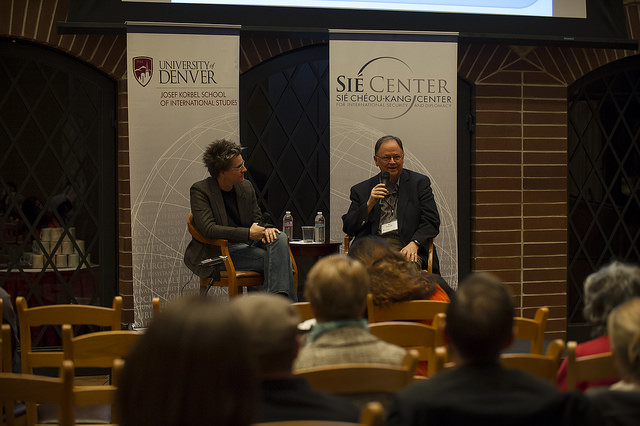Guest post by Ron E. Hassner
Critics of US torture policy offer two kinds of arguments against torture. Some emphasize the immorality of torture, its cruel and dehumanizing nature. But the most common argument used by anti-torture advocates is that torture doesn’t work. That argument is weak, even dangerous. There have always been good philosophical, historical, and technical reasons to reject the effectiveness argument. There is now a fourth reason to reject it, grounded in public opinion. Two surveys that I administered to more than 2,000 American adults show that Americans believe torture is very effective at extracting crucial information. The participants in my survey were not persuaded to oppose torture when I told them that it might not provide crucial information. But when I told them that torture was cruel, their support for torture dropped significantly. They rejected torture not because it was ineffective but because it was immoral.
Criticizing torture because it doesn’t work is a bad idea for several reasons. First of all, it’s a dubious philosophical claim. If torture is morally wrong, who cares how well it does or does not work? We don’t debate how “efficient” genocide, terrorism, or human rights abuses are either. How good or bad torture is at extracting information has no bearing on its morality either, unless it never ever yields useful information. But as history shows, that is not the case.
History offers a second reason to suspect the “efficiency” argument. New research on the history of torture shows that torture is often counterproductive. But, at other times, it has proven quite effective in extracting reliable information from reluctant detainees. For example, in Toledo, Spain, the Inquisition interrogated 1,046 people between 1575 and 1610. It tortured 123 of these people. Of those who were not tortured, 42 percent provided the court with evidence that the court considered useful. Of those who were tortured, 29 percent collaborated. That’s remarkable if we consider that only the most stubborn individuals, who had refused to cooperate without torture, were sent to the torture chamber in the first place. The evidence they revealed in the torture chambers of the Inquisition matched evidence provided by people who were not tortured: They named the same persons, places, religious practices, and events.
During the Philippine War (1899–1902), US soldiers subjected Filipino insurgents to “water torture”. About two-thirds of those tortured collaborated and revealed the locations of weapons caches. More recently in Iraq, Saddam Hussein ordered the torture of opposition members suspected of plotting against his regime. Of those detainees who were indeed opposition members, 42 percent later admitted that they had provided accurate information about their activities under torture. Torture is not an easy, quick, or completely reliable source of information—no source of intelligence is. Yet the historical evidence is a far cry from the confident claim that “torture never works”.
Technology provides a third reason to worry about “efficiency” arguments. Perhaps torture was not a useful way of forcing detainees to collaborate in the past (though the historical evidence suggests otherwise). Perhaps it does not provide such information in the present. Who knows what awful innovations in the practice of torture the future might bring? If some new truth serum or brain scan can dramatically increase the reliability of torture, it will pull the rug out from under torture critics who rely on efficiency arguments.
Two recent surveys provide a fourth reason to stop arguing that “torture doesn’t work”: Americans aren’t buying it. This is due, in large part, to heroic portrayals of torture in the media. Of the 1,031 adults who participated in my first survey, 67 percent thought that torture could force terror suspects to reveal useful information some or all of the time. Sixty-seven percent of participants also thought that waterboarding a suspect would yield intelligence within minutes or hours. (The correct answer is weeks and months). In a second survey of 1,116 US adults, 68 percent expected sleep deprivation to provide information within days.
Could I change their minds by telling them that torture was not effective? To test this, my surveys proposed an imaginary torture scenario. Seventy-six percent of survey participants who read this basic scenario supported torture. Other survey participants read the same scenario but were also told that the torture was not very effective: The detainee “probably won’t reveal new information but he could help the CIA confirm their suspicions about the attack”. This additional piece of information had almost no effect. Seventy-four percent of respondents in this second group supported torture. However, members of a third surveyed group read the original scenario accompanied by the statement “the interrogation might last a month.” In this group, only 60 percent of participants supported torture. Something about the duration of torture reduced support for torture in ways that “torture doesn’t work” arguments could not accomplish.
To confirm and explain these results, I conducted a second survey. All 1,116 US adults in this second survey read the initial scenario and, once again, 76 percent supported torture under these conditions. I then asked those who supported torture whether they would still support torture if they knew that it might last a month. In response, support for torture dropped by 30 percent. Suddenly, less than half of the survey participants supported torture. Information about the duration of torture dramatically reduced support for torture across the board: Democrats and Republicans, men and women, young and old, turned away from torture when they learned this awful truth about its nature.
To find out why, I asked a series of follow-up questions about efficiency. Did participants worry that the information provided under torture would be outdated after a month? Did they feel that such prolonged torture would be useless in preventing a looming terror attack? Fewer than 35 percent of participants chose these answers. 61 percent chose a third answer: “A month is too long to deprive someone of sleep.” Their concern was with the cruelty of this torture, not its efficiency.
Research into contemporary US torture practices suggests that torture, even extreme torture such as waterboarding, can take weeks and months to yield intelligence. It is not surprising that Americans who believed falsely that torture could provide information in minutes and hours, were surprised when they learned that it might take a month or more to do so. Imagine how shocked they would have been if, instead of merely telling them about the true duration of torture, I had shared detailed gruesome descriptions of contemporary torture procedures.
American audiences can be persuaded to lower their support for torture if they hear the right arguments. Rather than try to convince Americans, in vain, that torture doesn’t work well, anti-torture activists should share information about contemporary torture, its nature, frequency, and the physical and mental scars it leaves on victims. Terror critics should move away from the unpersuasive slogan “torture does not work” and emphasize instead that torture is cruel, no matter how well it does or does not work.
Ron E. Hassner is Chancellor’s Professor of Political Science at UC Berkeley.







1 comment
Novel! I probably would’ve said the opposite. Which makes this counterintuitive finding more interesting. It does make sense that emotions, not logic, are the prime movers of behavior (in this case, changing your mind). So that logic supports your assertion the effectiveness argument will not resonate, but the immoral argument would. However it assumes “immoral” has salience. and I suspect there is a large variation in what people consider immoral.